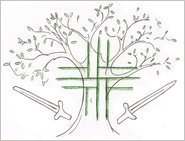Here is an article discussing the Ullaloo, an old Irish funeral custom involving wailing women, the same as found in Jeremiah 9:17- 20. 17 Thus saith the Lord of hosts, Consider ye, and call for the mourning women, that they may come; and send for cunning women, that they may come:
18 And let them make haste, and take up a wailing for us, that our eyes may run down with tears, and our eyelids gush out with waters.
19 For a voice of wailing is heard out of Zion, How are we spoiled! we are greatly confounded, because we have forsaken the land, because our dwellings have cast us out.
20 Yet hear the word of the Lord, O ye women, and let your ear receive the word of his mouth, and teach your daughters wailing, and every one her neighbour lamentation.
Source: http://www.irishcentral.com/roots/histo ... eason.html
Irish wakes and funerals are well known for being large affairs full of emotion, reminiscing, prayer and song. But this is nothing new.
As far back as the twelfth century the Irish were widely known for their remarkable funeral customs. According to Volume 4 of the “Transactions of the Royal Irish Academy,” a crowded funeral was the only proof needed that the deceased was a beloved member of the community. The volume includes a detailed account of old Irish laments, called Ullaloos, as well as interesting funeral and wake customs.
“It has been affirmed of the Irish that to cry was more natural to them than to any other nation, and at length the Irish cry became proverbial,” the book says. “The Irish then musically expressed grief – that is, they applied the musical art, in which they excelled, to the orderly celebration of funeral obsequies.”
Mourners at a funeral would divide in two, with one section at the head of the deceased (who would be elevated and ornamented with flowers), and the other at the feet. They would alternate verses of the laments, led by two chief bards, and join in song at the chorus. The Ullaloo would commence with the chief bard at the head singing the first stanza in a low tone accompanied by a harp.
After spending some time recalling the virtues and vices of the deceased, the two semi-choruses would then take turns “interrogating” the corpse – they would ask questions like, “Why did you die? Was your wife faithful? Were your sons dutiful? Were your daughters chaste?”
Each Irish province had different funeral songs – the “Ulster cry” was different in melody from the “Munster cry,” for example.
In the glossary for her novel "Castle Rackrent," Maria Edgeworth spoke about these customs: “[A crowd would] gather as the bearers of the hearse proceed on their way, and when they pass through any village, or when they come near any houses, they begin to cry, “‘oh! Oh! Oh! Oh! Agh! Agh! Agh!’ raising their notes from the first ‘Oh’ to the last ‘Agh’ in a kind of mournful howl.
“This gives notice to the inhabitants of the village that a funeral is passing, and immediately they flock out to follow it. In the province of Munster it is a common thing for the women to follow a funeral, to join the universal cry with all their might and main for some time, and then to turn and ask, ‘Arrah! Who is it that’s dead? Who is it we’re crying for?”
Between one and six priests usually attended these funerals, and would be paid to repeat mass – the fee would usually be according to the funds of the deceased. If the deceased was very poor, and left behind a wife and children, the priest would go around to each guest and collect contributions for the widow.
According to Edgeworth, old women with loud cries were held in high regard and were in great demand for attendance at funerals.
“Even beggars, when they grow old, go about begging for their own funerals. That is, begging for money to buy a coffin, candles, pipes and tobacco.”
“Those who value customs in proportion to their antiquity, and nations in proportion to their adherence to ancient customs will doubtlessly admire the Irish Ullaloo,” she said.
Edgeworth mentions one comedic rendition of the Irish Ullaloo from a Dublin play, in which a chorus of old women were lamenting for a decent amount of time, “with all the necessary accompaniments of wringing their hands, wiping or rubbing their eyes with the corners of their gowns or aprons, before one of the mourners suddenly suspends her lamentable cries, and turning to her neighbor asks, ‘Arrah now, honey, who is it we’re crying for?”
This Forum is now inactive and has been replaced by a new Christogenea Forum. You may browse here but there are no updated threads or new posts since January 1st 2017. Forum members please see THIS NOTICE for information concerning your account at the new forum.
Hebrew custom/Irish custom
4 posts
• Page 1 of 1
Hebrew custom/Irish custom
One King, One Faith, One Law.
-

Rogue - Posts: 87
- Joined: Sat Jan 19, 2013 11:44 am
Re: Hebrew custom/Irish custom
From "Greek Culture is Hebrew"
http://christogenea.org/podcasts/greek- ... e-06-12-10
From Aeschylus, The Libation Bearers, from line 424:
Aria was a district of Persia. Cissia was an area of Susiana, the capital district of Persia.
Jeremiah 9:17-18: “Thus saith the Lord of hosts, Consider ye, and call for the mourning women, that they may come; and send for cunning women, that they may come: 18 And let them make haste, and take up a wailing for us, that our eyes may run down with tears, and our eyelids gush out with waters.” This is a direct reference to the Persian custom of professional wailing women, which Jeremiah attests that the Hebrews also shared. Josephus also mentions the custom at Wars 3.9.5.
http://christogenea.org/podcasts/greek- ... e-06-12-10
From Aeschylus, The Libation Bearers, from line 424:
“Upon my breast I did beat an Arian dirge, even after the wont of a Cissian wailing-woman.”
Aria was a district of Persia. Cissia was an area of Susiana, the capital district of Persia.
Jeremiah 9:17-18: “Thus saith the Lord of hosts, Consider ye, and call for the mourning women, that they may come; and send for cunning women, that they may come: 18 And let them make haste, and take up a wailing for us, that our eyes may run down with tears, and our eyelids gush out with waters.” This is a direct reference to the Persian custom of professional wailing women, which Jeremiah attests that the Hebrews also shared. Josephus also mentions the custom at Wars 3.9.5.
Josephus, Wars 3.9.5 [3:432-437] wrote: 432 But now, when the fate of Jotapata was related at Jerusalem, a great many at the first disbelieved it, on account of the vastness of the calamity, and because they had no eyewitness to attest the truth of what was related about it; for not one person was saved to be a messenger of that news, 433 but a fame was spread abroad at random that the city was taken, as such fame usually spreads bad news about. 434 However, the truth was known by degrees, from the places near Jotapata, and appeared to all to be too true. Yet were there fictitious stories added to what was really done; for it was reported that Josephus was slain at the taking of the city; 435 which piece of news filled Jerusalem full of sorrow. In every house also, and among all to whom any of the slain were related, there was a lamentation for them; but the mourning for the commander was a public one; 436 and some mourned for those who had lived with them, others for their kindred, others for their friends, and others for their brethren, but all mourned for Josephus; 437 insomuch that the lamentation did not cease in the city before the thirtieth day; and a great many hired mourners, with their pipes, who should begin the melancholy dirges for them.
-

wmfinck - Site Admin
- Posts: 2775
- Joined: Fri Jul 03, 2009 2:09 am
Re: Hebrew custom/Irish custom
I know this isn't the Island of Ireland perse, but it's interesting what Caesar had to say about The Ancient British.
Here we can see the inhabitants still keeping the food Laws, possibly passed down as tradition.
In 54 BC Julius Caesar described the Britons:
"The population is exceedingly large, the ground thickly studded with homesteads...and the cattle very numerous... hares, fowl, and geese they think it unlawful to eat, but rear them for pleasure and amusement...Most of the tribes do not grow corn but live on milk and meat, and wear skins. All the Britons dye their bodies with woad, which produces a blue colour, and this gives them a more terrifying appearance in battle."
Caesar, Julius "The Britons" The Conquest of Gaul
Here we can see the inhabitants still keeping the food Laws, possibly passed down as tradition.
In 54 BC Julius Caesar described the Britons:
"The population is exceedingly large, the ground thickly studded with homesteads...and the cattle very numerous... hares, fowl, and geese they think it unlawful to eat, but rear them for pleasure and amusement...Most of the tribes do not grow corn but live on milk and meat, and wear skins. All the Britons dye their bodies with woad, which produces a blue colour, and this gives them a more terrifying appearance in battle."
Caesar, Julius "The Britons" The Conquest of Gaul
One King, One Faith, One Law.
-

Rogue - Posts: 87
- Joined: Sat Jan 19, 2013 11:44 am
Re: Hebrew custom/Irish custom
Rogue said
That's me. My niece even said one time "I know what uncle Joe likes, here's what uncle Joe likes, meat, milk and nothing else". lol
but live on milk and meat
That's me. My niece even said one time "I know what uncle Joe likes, here's what uncle Joe likes, meat, milk and nothing else". lol
...and a flaming sword which turned every way, to keep the way of the tree of life.
-

Joe - Posts: 1664
- Joined: Thu Aug 29, 2013 1:23 pm
4 posts
• Page 1 of 1
Who is online
Users browsing this forum: No registered users and 0 guests

